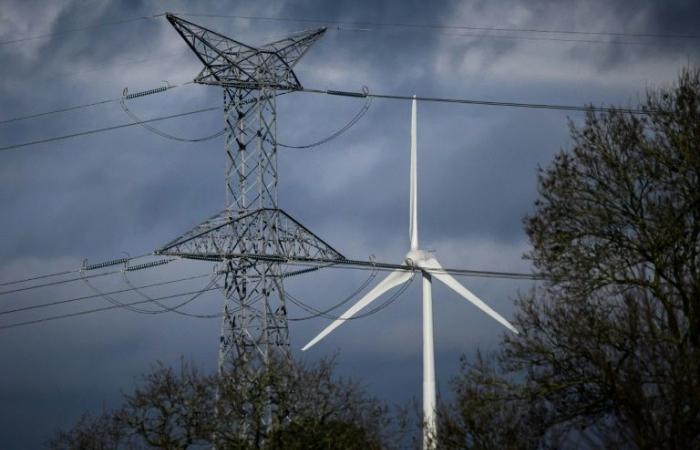The French will be asked to contribute more to their electricity bill from 2025 to finance the colossal investments linked to the energy transition, estimated Thursday the energy regulator which is opening a consultation to determine the amount of this increase.
Concretely, this increase in the contribution to the financing of the RTE and Enedis networks should not result in an increase in the bill for a majority of households.
The decision of the Energy Regulatory Commission (CRE) will be added to the calculation of the new electricity taxation provided for in the government’s draft budget which promises to “guarantee the consumer a 9% reduction in the regulated tariff of sales (TRV) in 2025 from February 1”.
Open until November 22, the consultation launched by the CRE, the sector regulator, is open to everyone, from the general public to businesses. It concerns the “network tariff”: it is not a tax but the equivalent of a toll for using the electricity transmission networks – RTE and electricity distribution networks – Enedis.
Paid by suppliers, it is passed on to households and businesses via their electricity bill. It constitutes one of the three components of the bill, with the cost of electricity and taxes.
The amount of this future “network toll” known as TURPE7 (or tariff for the use of electricity networks), for the period 2025-2028, will be set by the CRE no later than January 2025, announced this independent authority.
Concretely for a residential customer, the TURPE currently represents “around €0.06/kWh, or around 20 to 30% of an average electricity bill including tax, depending on the price of electricity”, underlines the CRE. With the increase in 2025, it would represent 0.068 to 0.069 €/KWh on the bill.
The CRE argues that it should “be necessary to increase the TURPE by around 10% in 2025, followed by three years of increases in inflation, to give network managers the means to carry out their missions in good conditions. This is an “illustrative” scenario which gives an order of magnitude but it does not constitute its final decision.
– Renewable energies –
The CRE underlines that this increase is notably due to strong growth in forecast investment expenditure: 2.1 billion euros per year in 2023 to 6.4 billion in 2028 for RTE, and 4.9 billion per year in 2023 to 7 billion in 2028 for Enedis.
The tariff period (2025-2028) “will be marked by proactive policies for the electrification of uses, particularly in mobility and industry, and by the growth in electricity production from renewable energies, with the consequence continued significant development in the number of connections”, indicates the CRE.
“It will also be necessary, at the same time, to improve the resilience of networks to face climate change and to compensate for their aging,” she adds. According to her, RTE requested an increase in its tariff of +12.2% and Enedis an increase of +18.9%.
This planned increase comes in an explosive context for energy prices, with the government planning to increase taxes on electricity.
The president of the CRE, Emmanuelle Wargon, had called, before the presentation of the budget, to “be careful” regarding an excessive increase in the domestic final consumption tax on electricity (TICFE), and its consequences on bills.
This tax had been lowered to the minimum to relieve the bills of the French during the energy crisis. It was raised in February from 1 to 21 euros per MWh and the previous government intended to raise it to 32.44 euros per MWh in February 2025, i.e. its level before the surge in electricity prices on the markets.
Concretely, Michel Barnier’s government now plans to set a base rate for this tax at €25/MWh. To this would be added an increase of between €5 and €25/MWh, which will be determined depending on the evolution of prices on the markets and the level retained for Turpe. And this, in order to respect the commitment to reduce electricity bills at the regulated sales rate (TRV) of -9% in February.
The CRE is studying the opportunity to bring forward the application of TURPE 7 from August 2025, the planned term, to February, in order to “avoid movements in opposite directions at 6-month intervals”.
■






